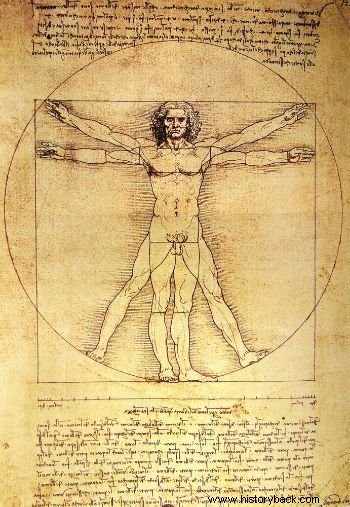The Anthropocentrism is a concept and a philosophy that emphasizes the importance of man as a being endowed with intelligence and, therefore, free to perform his actions in the world.
The word comes from the Greek:anthropos " human" and kentron " center" which means man in the center.
It emerged by questioning Theocentrism system where God (Theos, in Greek) would be at the center of the world.
 Symbol of Humanistic Anthropocentrism:Vitruvian Man (1590) by Leonardo da Vinci
Symbol of Humanistic Anthropocentrism:Vitruvian Man (1590) by Leonardo da Vinci
Thus, anthropocentrism is a set of ideas where man represents the central figure in the fields of culture, science, society and is the main reference for understanding the world.
The human being, for anthropocentrism, is rational, critical, questioning his own reality and responsible, therefore, for his thoughts and actions.
It seeks the truth through analysis and the rational and scientific method, through proofs and explanations, preferably mathematical.
This human independence from God led the human being to reflect, create, disseminate and produce knowledge in another way, made possible great scientific discoveries and the emergence of individualism.
Differences between Theocentrism and Anthropocentrism
In contrast, Theocentrism is related to religion, which explains natural phenomena from the will of a superior being.
All of society, in its social, cultural and economic aspects, should be based on God.
It was a very widespread concept during the Middle Ages when religion played an important role in the life of society.
Humanism and Anthropocentrism
During the 15th and 16th centuries, Europe underwent several economic and social transformations. Some events are the great navigations, invention of the press, Protestant reform, decline of the feudal system, emergence of the bourgeoisie, scientism, etc.
At this time, Renaissance humanism and anthropocentrism is part of the movement. With this, the scholars intended to bring up questions based on empiricist scientism .
Therefore, anthropocentrism represented the transition from feudalism to mercantile capitalism, or even from the Middle Ages to the Modern Age.
The arts in general (literature, painting, sculpture, music, etc.) as well as philosophy, are guided by this new vision of the world, in order to create their works.
Likewise, the humanists encouraged the inclusion of disciplines in the academic universe, important for the development of this new mentality, such as philosophy, languages, literature, arts, humanities and sciences.
Anthropocentrism and religion
Although the divine figure was questioned, God was not left out in Anthropocentrism. The "sacred" was still part of people's lives, however, it became not the only source of truth. The Bible itself has been extensively studied at this time through new translations and historical criticism.
The truth, however, should be sought through human rationality (reason), as this would be a divine gift.
Learn more about the topic by reading the articles :
- Humanism
- Renaissance:Characteristics and Historical Context
